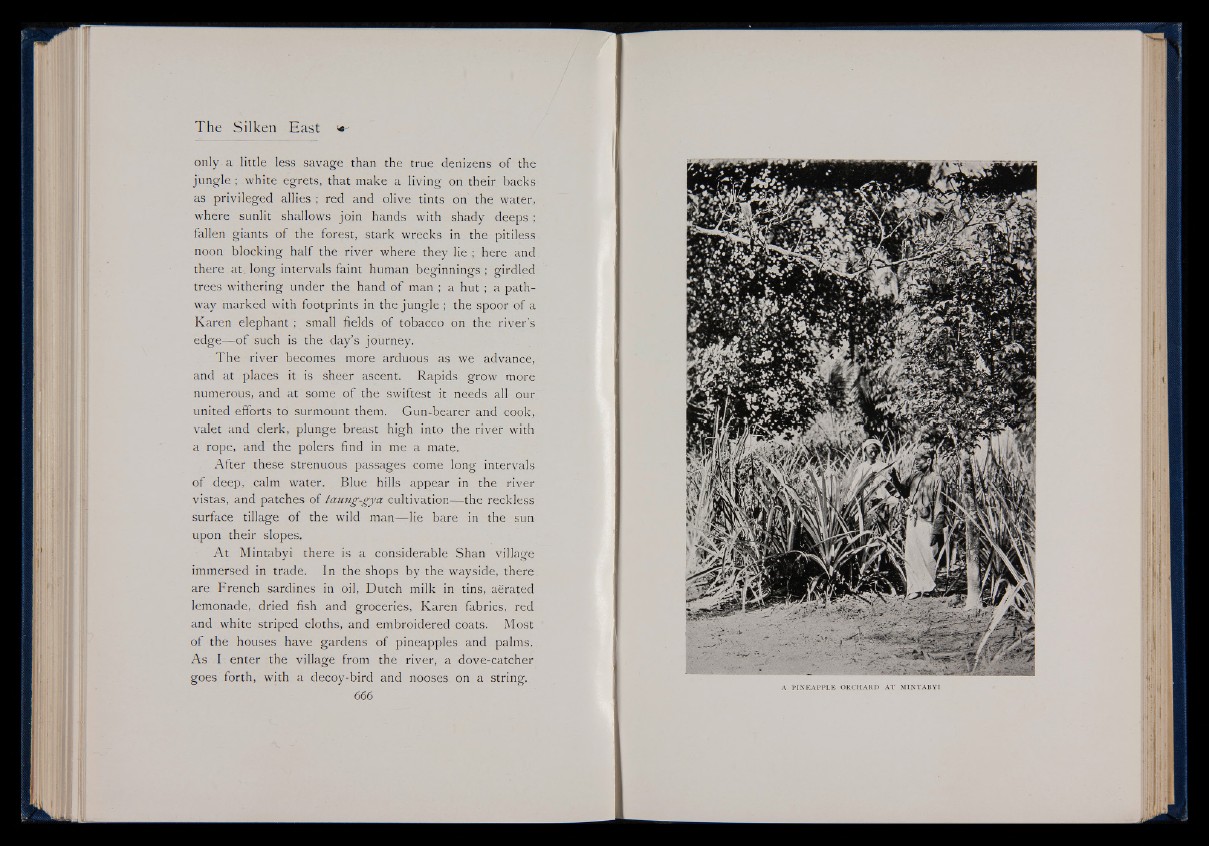
only a little less savage than the true denizens of the
jungle; white egrets, that make a living on their backs
as privileged allies ; red and olive tints on the water,
where sunlit shallows join hands with shady deeps ;
fallen giants of the forest, stark wrecks in the pitiless
noon blocking half the river where they lie ; here and
there at, long intervals faint human beginnings ; girdlpd
trees withering under the hand of man ; a h ut; a pathway
marked with footprints in the jungle ; the spoor of a
Karen elephant ; small fields of tobacco on the river’s
edge—of such is the day’s journey.
The river becomes more arduous as we advance,
and at places it is sheer ascent. Rapids grow more
numerous, and at some of the swiftest it needs all our
united efforts to surmount them. Gun-bearer and cook,
valet and clerk, plunge breast high into the river with
a rope, and the polers find in me a mate.
After these strenuous passages come long intervals
of deep, calm water. Blue hills appear in the river
vistas, and patches of taung-gya cultivation—the reckless
surface tillage of the wild man—lie bare in the sun
upon their slopes.
At Mintabyi there is a considerable Shan village
immersed in trade. In the shops by the wayside, there
are French sardines in oil, Dutch milk in tins, aerated
lemonade, dried fish and groceries, Karen fabrics, red
and white striped cloths, and embroidered coats. Most
of the houses have gardens of pineapples and palms.
As I enter the village from the river, a dove-catcher
goes forth, with a decoy-bird and nooses on a string,
666